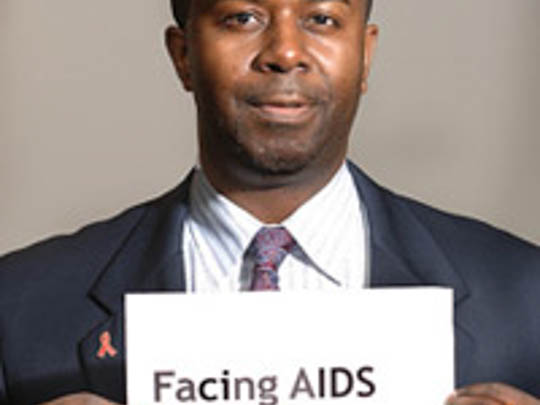Strategy in Action: Organizations Use Storytelling and Training to Deliver HIV/AIDS Prevention Messages to Black MSM
Topics

Across the country, organizations are responding in innovative ways to the National HIV/AIDS Strategy’s call to reduce HIV-related disparities and health inequities, including those experienced by African American gay, bisexual, and other men who have sex with men (MSM).
African Americans have the most severe burden of HIV of all racial/ethnic groups in the United States, and Black MSM, in particular, continue to be disproportionately affected by the HIV epidemic. According to the Centers for Disease Control and Prevention (CDC), in 2010, Black gay, bisexual, and other MSM represented an estimated 72% of new infections among all Black men and 36% of new infections among all MSM. More new HIV infections occurred among young Black MSM (aged 13-24) than any other age or racial group of MSM.
Partners in the CDC’s Act Against AIDS Leadership Initiative (AAALI) are working with their constituencies nationwide to change that. Launched by CDC in 2009 as part of its Act Against AIDS communication campaign, AAALI is a six-year partnership between CDC and leading national organizations representing African Americans and Latinos, who were chosen based on their ability to effectively deliver HIV prevention messages to these disproportionately impacted communities. The partners are using their collective strength and influence to increase HIV/AIDS awareness, prevention, testing, and action within communities disproportionately affected by HIV/AIDS across the United States. While many AAALI partners have longstanding commitments to fighting HIV in their communities, the initiative provides the critical funding needed to allow each group to make HIV prevention a core component of its day-to-day activities. The 19 partners are now in the “outreach phase” of their work during which they are working with their networks and through partnerships to support local HIV awareness and mobilization efforts in communities around the country.
Center for Black Equity
One AAALI partner, the Center for Black EquityExit Disclaimer (CBE), is working to spread the word about the importance of HIV prevention, testing, and treatment among lesbian, gay, bisexual, and transgender (LGBT) people of African descent. Previously known as the International Federation of Black Prides, the organization promotes HIV/AIDS outreach and education within the context of a holistic approach to improving health and wellness, economic empowerment, and equal rights for Black LGBT individuals.
One of CBE’s recent AAALI activities has been helping one of its member organizations, Philadelphia Black Gay PrideExit Disclaimer (PBGP), to conceptualize and develop “The Art of Perseverance,” a storytelling and role modeling project to share a message of courage, hope, inspiration and leadership in the face of the HIV/AIDS epidemic among gay, bisexual, same gender loving, and men who have sex with men.
Modeled after the evidence-based Peers Reaching Out and Modeling Intervention Strategies (PROMISE) prevention intervention, “The Art of Perseverance,” features PBGP Vice President D’Angelo D’Ontace Keyes sharing his personal story as a person living with HIV/AIDS along with risk reduction materials to help encourage others to adopt safer sex and risk reduction practices.

In the introduction to “The Art of Perseverance,” Mr. Keyes shares the following:
As an individual who has persevered through issues of abuse, homelessness, and social stigma, it was my passion for education and community service that helped me become the leader I am today. Being diagnosed with HIV/AIDS at an early age was once a setback for me. With perseverance, I realized that identifying as a Black gay and HIV-positive person of color is not a burden…I understand the importance and impact that my decisions have on the next generation and intend to make them legendary.Research on the PROMISE intervention found that the sharing of such personal stories and risk-reduction messages by peer role models can be successful in influencing others to change their risk behaviors. CBE is disseminating the “The Art of Perseverance” through the organization’s website, social media channels, and mobile phone video messaging activities, as part of the organization’s observance of National Gay Men's HIV AIDS Awareness Day or facebook.com/CBEINC.]
Other AAALI Partner Activities
Some other AAALI partners are also working to address HIV prevention, testing and linkage to care specifically among Black MSM. For example, Black Men’s Xchange (BMX) is also working to deliver HIV/AIDS prevention messages to its audiences through work with its seven chapters across the country. Serving same gender loving, gay-identifying, bisexual, and diverse males of African descent, BMX’s chapters conduct community forums, teach-ins, and family-unification projects as part of their efforts to raise awareness about HIV prevention, testing, and treatment. In addition, another AAALI partner, the Congressional Black Caucus FoundationExit Disclaimer (CBCF), organized a session on sexual health earlier this month as part of its Annual Legislative Conference, a national conference exploring key issues impacting the African-American community. Addressing HIV in the Black community and among Black MSM in particular were among the issues explored in this session. The session’s featured speakers included Emory University’s Dr. David Malebranche, a nationally recognized clinician-researcher with expertise in the clinical management of HIV and behavioral HIV prevention research with Black MSM United States.
Note: CDC supports a number of HIV awareness campaigns under Act Against AIDS. Two of them - Testing Makes Us Stronger and Reasons/Razones are specifically tailored to reach Black and Latino gay, bisexual and other MSM.